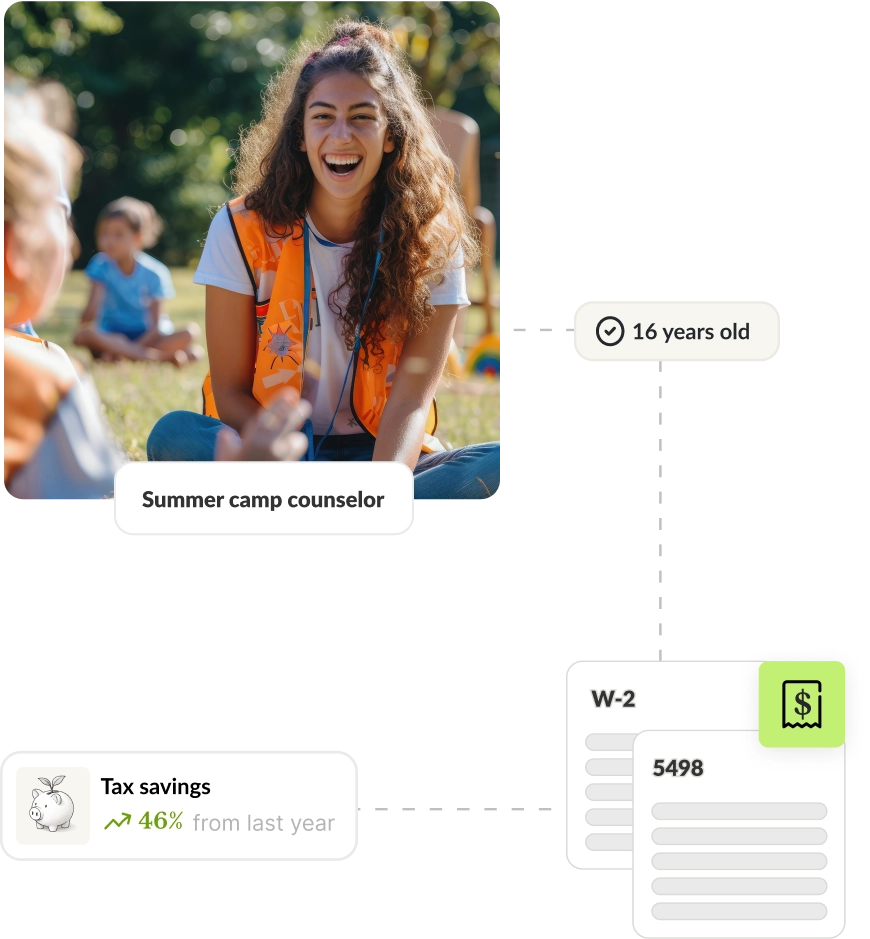2025 Kansas State Tax Deadlines
Kansas business tax deadlines for 2025
C Corporations' deadlines and requirements
C Corporations in Kansas must file and pay Corporate Income Taxes by April 15, 2026.
Filing requirements include:
- Complete Form K-120 (Kansas Corporation Income Tax Return)
- File online through the Kansas Department of Revenue website
- File by mail must be postmarked by the due date
- Payment must be made by April 15, 2026
Extension to file taxes in Kansas for 2025
The Extension Deadline for Kansas Corporate income tax returns is October 15, 2026. Kansas automatically grants a six-month extension on filing Corporate income tax returns without requiring separate forms. This is an extension to FILE, not an extension to PAY—payment is still due April 15, 2026.
Pass-through entities
Kansas S Corporations and Partnerships tax deadlines for 2025
S Corporations and Partnerships must file in Kansas by April 15, 2026.
Required forms include:
- Form K-120S – S Corporation Income Tax Return
- Form K-65 – Partnership Income Tax Return
Extension to file S Corporations and Partnerships taxes in Kansas for 2025
The Extension Deadline for Kansas S Corporations and Partnerships returns is October 15, 2026. Kansas automatically grants a six-month extension on filing pass-through entity tax returns without requiring separate applications. This is an extension to FILE, not an extension to PAY—payment is still due April 15, 2026.
Kansas Individual tax considerations for 2025
Filing requirements and income thresholds
Kansas Individuals must file a State income tax return if their gross income exceeds the standard deduction plus personal exemptions.
The 2025 standard deduction amounts are:
- Single taxpayers - $3,605
- Married filing jointly - $8,240
- Head of household - $6,180
- Married filing separately - $4,120
Estimated tax deadline for Kansas 2025
Estimated tax payments are due:
- April 15, 2025
- June 15, 2025
- September 15, 2025
- January 15, 2026
Who must make estimated payments
You must make Kansas estimated income tax payments during 2025 if your Kansas income tax balance due, after withholding and prepaid credits, is $500 or more. Additionally, your withholding and prepaid credits for the current tax year must be less than 90% of the tax on your current year's return.
Individual tax deadline for Kansas 2025
You must file and pay Individual Income Taxes in Kansas by April 15, 2026. Kansas accepts electronic filing through Kansas WebFile, which significantly saves time and processing efforts.
Available forms include:
- Form K-40 – Kansas Resident Individual Income Tax Return
- Form K-40NR – Kansas Nonresident Individual Income Tax Return
Extension to file taxes in Kansas for 2025
The Extension Deadline is October 15, 2026, to file your Kansas Individual Income tax return. Kansas automatically grants a six-month extension on filing personal income taxes without requiring separate extension forms. This is an extension to FILE, not an extension to PAY—payment is still due April 15, 2026.
What Kansas tax professionals need to know
Several key considerations make Kansas's tax landscape unique for 2025. Kansas's simplified two-bracket income tax system applies rates of 5.2% and 5.58% to all taxable income levels. The State offers various tax credits, including significant business incentives and Individual exemptions.
Electronic filing requirements
Kansas has implemented mandatory electronic filing for certain taxpayers:
- Corporations and Partnerships with tax year 2020 and later returns must file electronically
- Business deductions can be processed more efficiently through electronic systems
- Individual taxpayers can use Kansas WebFile for free electronic filing
Key tax law changes for 2025
Effective January 1, 2025, the state sales tax rate on food and food ingredients has been reduced to 0%. However, local sales taxes imposed by cities and counties remain in effect. This provides significant relief for Kansas families.
Kansas's unique tax features for 2025
Residency determination
Kansas determines residency based on domicile—where you have your permanent home and intend to return. Full-year residents pay tax on all income, regardless of its source, while part-year residents and nonresidents have different tax obligations.
Military pay exemptions
Kansas provides favorable treatment for military personnel:
- Military retired pay is not taxed
- Specialized deductions for active-duty service members
- National Guard and reserve pay for active service receives preferential treatment
Social Security benefits
Kansas exempts Social Security benefits from state income tax for Individuals with a federal Adjusted Gross Income (AGI) of $75,000 or less, regardless of filing status. This provides significant savings opportunities for retirees.
Personal exemptions and enhanced benefits
Kansas substantially increased personal exemptions to $9,160 for single filers and $18,320 for married couples filing jointly, with dependent exemptions of $2,320. These increases significantly reduce taxable income for many Kansas families.
Sources
- Kansas Department of Revenue
- Kansas Tax Calendar of Due Dates
- Kansas Individual Income Tax Information
Don't miss State tax deadlines – Join Instead
State tax deadlines are approaching fast. While you're scrambling to gather documents and figure out complex deductions, you could be missing thousands in potential savings.
Instead's AI-driven platform does the heavy lifting for you—automatically identifying tax strategies, monitoring your accounts for savings opportunities, and ensuring you claim every deduction to which you're entitled. No more guesswork, no more missed opportunities.
The material discussed on this page is meant for general illustration and/or informational purposes only and is not to be construed as investment, tax, or legal advice. You must exercise your own independent professional judgment, recognizing that advice should not be based on unreasonable factual or legal assumptions or unreasonably rely upon representations of the client or others. Further, any advice you provide in connection with tax return preparation must comply in full with the requirements of IRS Circular 230.
Please note that if any due date falls on a federal or state holiday or weekend, it may be adjusted to the next business day. Always verify current deadlines with the appropriate tax professional and authorities.
Looking for a different year?

























